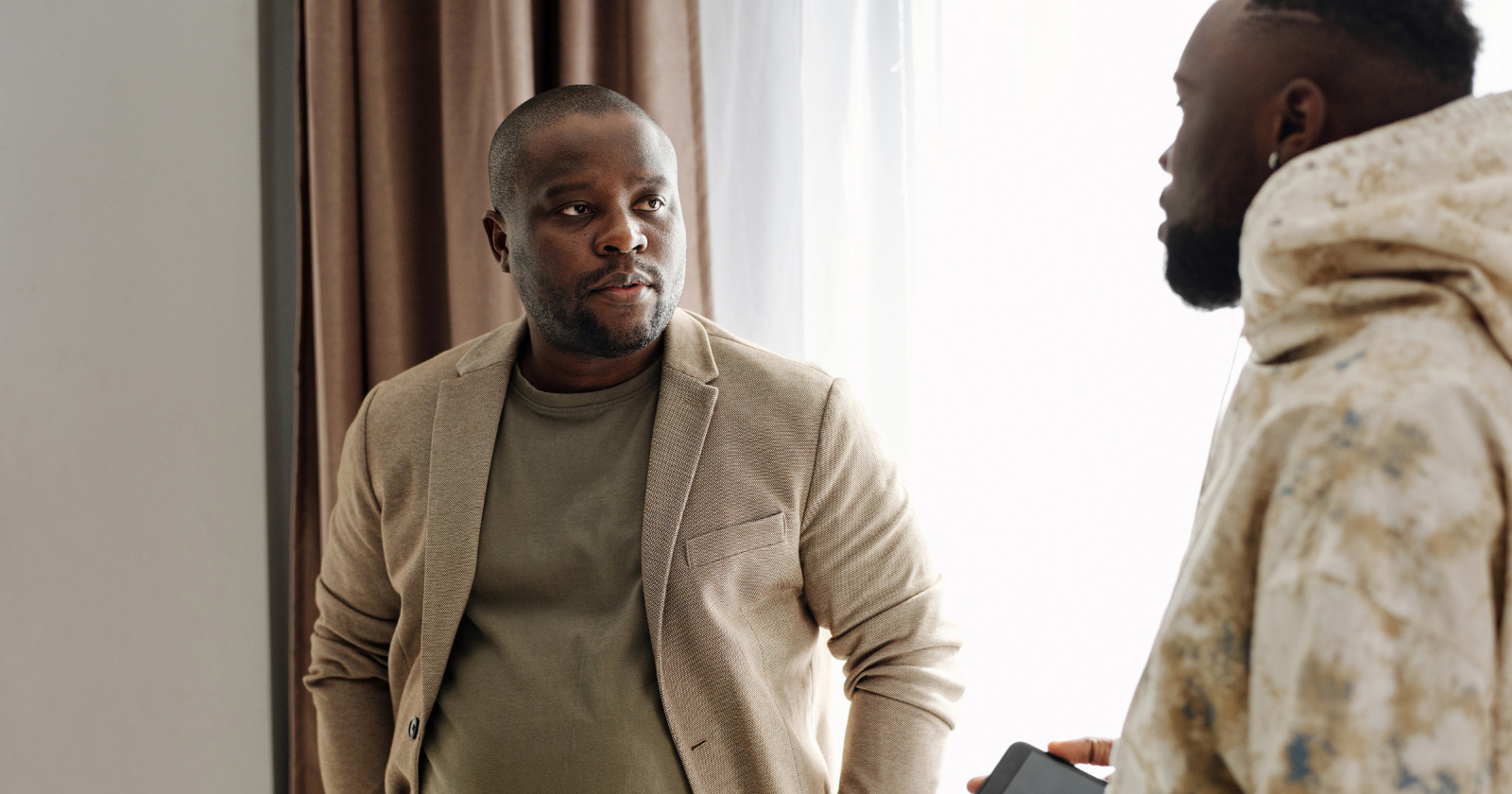Confidence is one of those things we’re told we either have or we don’t. Some people walk into a room and instantly command attention, while others shrink into the background. It seems obvious who’s got it all together, right?
But here’s what I’ve learned: that effortless confidence isn’t always what it seems. Some of the most self-assured people on the surface—the ones who seem fearless, charismatic, and in control—are actually wrestling with deep insecurities underneath.
The tricky part? They’ve gotten really good at hiding it. In fact, their insecurity doesn’t show up in the ways you’d expect. Instead, it reveals itself through subtle behaviors most of us overlook.
If you’ve ever wondered why someone acts a certain way despite appearing confident, or if you’ve questioned your own moments of doubt despite seeming put-together to others, this might explain why.
Here are eight subtle behaviors that often signal hidden insecurity, even in the most outwardly confident people.
1) They need to prove themselves constantly
Truly confident people don’t feel the need to remind everyone how confident they are. But those who are secretly insecure? They often go out of their way to prove themselves—whether it’s through their achievements, their knowledge, or even their social status.
They might casually mention their successes in conversations, make a point of highlighting their skills, or subtly compete with others even when no one else is keeping score. It’s not always obvious bragging, but there’s a certain energy of needing validation from the outside world.
Deep down, they’re not trying to impress you—they’re trying to reassure themselves. If they stop proving themselves, they fear they might not be enough.
2) They struggle to take criticism
When someone’s confidence is solid, they can handle feedback without taking it personally. But for those who are secretly insecure, even the smallest critique can feel like an attack.
I used to be this way without even realizing it. A former boss once gave me some constructive feedback on a project, and instead of seeing it as a chance to improve, I felt embarrassed and defensive. I spent the rest of the day replaying the conversation in my head, trying to justify why my work was actually fine as it was.
Looking back, I wasn’t upset because the feedback was unfair—I was upset because deep down, I was already questioning my abilities, and hearing it from someone else just confirmed my worst fears.
People who seem confident but struggle with insecurity often react this way. They might brush off criticism, make excuses, or even get irritated when someone points out a flaw. Not because they believe they’re perfect—but because they’re afraid they’re not good enough.
3) They always have to be right
The greatest enemy of knowledge is not ignorance, it is the illusion of knowledge.
— Stephen Hawking
People who are truly confident in themselves don’t feel the need to win every argument. They can admit when they’re wrong, change their mind when presented with new information, and engage in discussions without needing to dominate them.
But when someone appears confident yet is secretly insecure, admitting they’re wrong feels impossible.
They will debate endlessly, double down on weak points, or shift the goalposts just to avoid conceding. It’s not about the topic itself—it’s about what being “wrong” represents to them.
If they admit fault, even on something small, it chips away at the image they’ve carefully built for themselves.
Insecurity makes people cling to certainty, even when it’s clear they don’t have all the answers. The need to be right isn’t about proving something to others—it’s about protecting themselves from self-doubt.
- I was convinced my low-income upbringing defined me, but learning how to handle money mindfully turned my past disadvantage into a future strength. - NewsReports
- 6 subtle signs you’re evolving into your best self - Global English Editing
- 5 zodiac signs who tend to have a sarcastic sense of humor - Parent From Heart
4) They overcompensate with perfectionism

Perfectionism isn’t just about having high standards—it’s often a defense mechanism. Studies have shown that many perfectionists struggle with deep feelings of inadequacy, using their relentless pursuit of flawlessness to mask self-doubt.
Someone who appears confident but is secretly insecure might obsess over the smallest details, refuse to delegate tasks, or procrastinate because they fear their work won’t be “good enough.”
To the outside world, they seem disciplined and driven. But beneath the surface, they’re battling an internal voice that tells them anything less than perfect is a failure.
It’s not just about getting things right—it’s about avoiding the shame of getting something wrong. Even when they achieve something great, they rarely feel satisfied because their confidence is tied to external validation rather than genuine self-assurance.
5) They deflect with humor or sarcasm
Not all insecurity looks like self-doubt—sometimes, it looks like a perfectly timed joke. People who are secretly insecure often use humor or sarcasm to steer attention away from their vulnerabilities.
They might make fun of themselves before anyone else can, brush off serious conversations with a joke, or turn every situation into something lighthearted.
On the surface, it seems like confidence—they’re quick-witted, charming, and never take things too seriously. But in reality, humor becomes a shield, a way to avoid uncomfortable truths or deeper emotions.
It’s one thing to have a good sense of humor, but when someone consistently uses it to dodge real conversations or hide their struggles, it’s often a sign that they don’t feel as secure as they seem.
6) They seek validation but pretend they don’t need it
Someone who is truly confident doesn’t rely on external approval to feel secure. But when someone is secretly insecure, they often crave validation—while doing everything they can to make it seem like they don’t.
They might subtly fish for compliments, downplay their achievements in a way that invites reassurance, or act indifferent toward praise while secretly needing it to feel good about themselves.
Sometimes, they’ll even act like they don’t care what anyone thinks, insisting that they’re above seeking approval, when in reality, they’re paying close attention to how others perceive them.
It’s a delicate balancing act—wanting to be seen and appreciated, but fearing that needing validation makes them weak.
Instead of openly acknowledging this need, they disguise it behind indifference or self-deprecating remarks, hoping someone will see through it and offer the reassurance they won’t ask for directly.
7) They have a hard time celebrating others
Confidence isn’t just about feeling good about yourself—it’s also about being secure enough to appreciate others without feeling threatened.
But when someone appears confident yet struggles with insecurity, they often find it difficult to genuinely celebrate other people’s successes.
They might downplay someone else’s achievements, offer a half-hearted compliment, or quickly shift the conversation back to themselves. In some cases, they may even feel an unspoken sense of competition, as if someone else’s win somehow makes them less successful by comparison.
It’s not that they don’t want to be happy for others—it’s that deep down, every success they witness reminds them of their own self-doubt.
Instead of feeling inspired, they feel inadequate, as if they’re falling behind in a race no one else is actually running.
8) They keep people at a distance
True confidence allows for real connection—because when you feel secure in yourself, you’re not afraid of being fully seen. But those who are secretly insecure often keep others at arm’s length, even if they appear outgoing and sociable.
They might avoid deep conversations, deflect personal questions, or maintain a carefully curated version of themselves that never reveals too much. They can be the life of the party, the person everyone admires, yet still feel isolated because they don’t let anyone close enough to see the cracks beneath the surface.
The fear isn’t just about rejection—it’s about exposure. If someone gets too close, they might see the doubts, the imperfections, the things that don’t align with the confident image they project.
And for someone who ties their self-worth to that image, letting people in feels like the biggest risk of all.
The bottom line
If you recognized yourself in any of these behaviors, you’re not alone. Many people who seem the most self-assured are carrying doubts they rarely admit, even to themselves.
The good news is that real confidence isn’t about perfection—it’s about self-acceptance. It’s about recognizing where insecurity shows up and working through it instead of masking it.
Start by noticing when you feel the need to prove yourself, deflect compliments, or avoid vulnerability. Ask yourself: Am I acting from a place of genuine confidence or out of fear? Would letting go of this need make me feel more free?
Growth doesn’t happen overnight, but self-awareness is the first step. The more you practice embracing who you are—flaws, doubts, and all—the less power insecurity has over you.
And that’s where real confidence begins.









